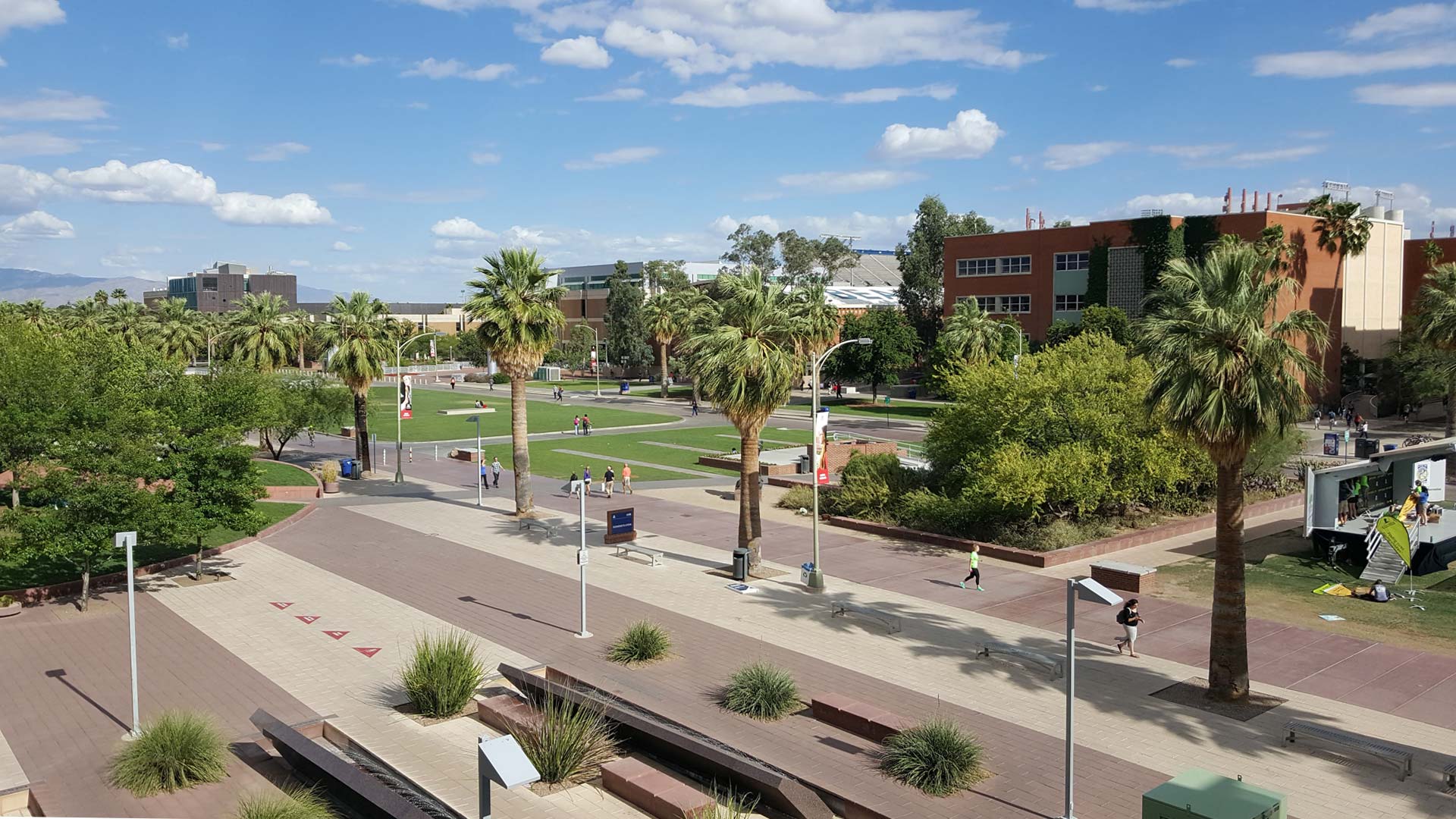 A view of the mall at the University of Arizona taken from the Student Union.
A view of the mall at the University of Arizona taken from the Student Union.
A new project led by the University of Arizona is combining science and food to help communities adapt to climate change.
“Tasting Tomorrow” is led by experimental artist, philosopher and writer Jonathon Keats. The project uses climate analog modeling to predict future climate conditions in a given region by comparing it to places that already have those qualities today.
For example, the research team predicts Tucson’s climate will be most similar to parts of Pakistan and Central Australia in 50 years.
The researchers can then see what crops and ingredients will grow in the new climate, and share food knowledge between these communities. The team also aims to maintain local cuisines by providing sustainable alternatives to ingredients that might not be supported in the future.
Keats says it is important to consider impacts of climate change beyond physical food security. According to Keats, climate change adaptation needs to go beyond infrastructure and include the most human parts of us, like preparing and sharing meals.
“When we think about nourishment, we really need to be thinking not only about what provides us with energy, we need to be thinking about this also in how we are nourished in terms of life having meaning, in terms of relationships, in terms of family, in terms of community,” he says.
By sharing food knowledge across the world, communities build resilience, Keats says, which in turn aids global action.

By submitting your comments, you hereby give AZPM the right to post your comments and potentially use them in any other form of media operated by this institution.